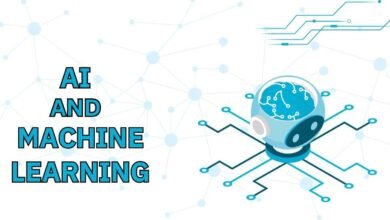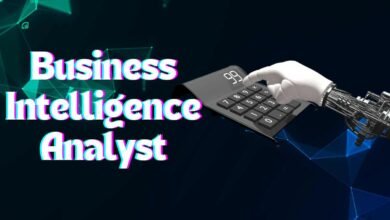Chatbots and Artificial Intelligence: Ultimate Digital Guide for New
Chatbots and Artificial Intelligence

Chatbots and Artificial Intelligence, these days when technology hits the skies, chatbots and Artificial Intelligence (AI) are the buzzwords. But what do these words mean? How do they set the fire ablaze in the future? With this ever-changing world of technology, the urge to know everything about these things becomes imperative. Let’s take a journey through the wonderful domains of chatbots and AI and learn about their definitions, functionalities, and much more.
Chatbots
A chatbot is software planned to simulate human conversation. It could talk to each other in text or voice format that would inform, assist, or even just entertain.
Actually, the first chatbot was invented as early as the 1960s and was called ELIZA, which illustrated the oldest style of chatbot development.
Brief History of Chatbots
For instance, history begins at ELIZA to PARRY, the advanced model simulating a paranoid schizophrenic patient. Finally, there was the advanced one we use today—just like Siri, Alexa, and Google Assistant—so much more advanced than just simple questions.
Basic Functionalities of Chatbots
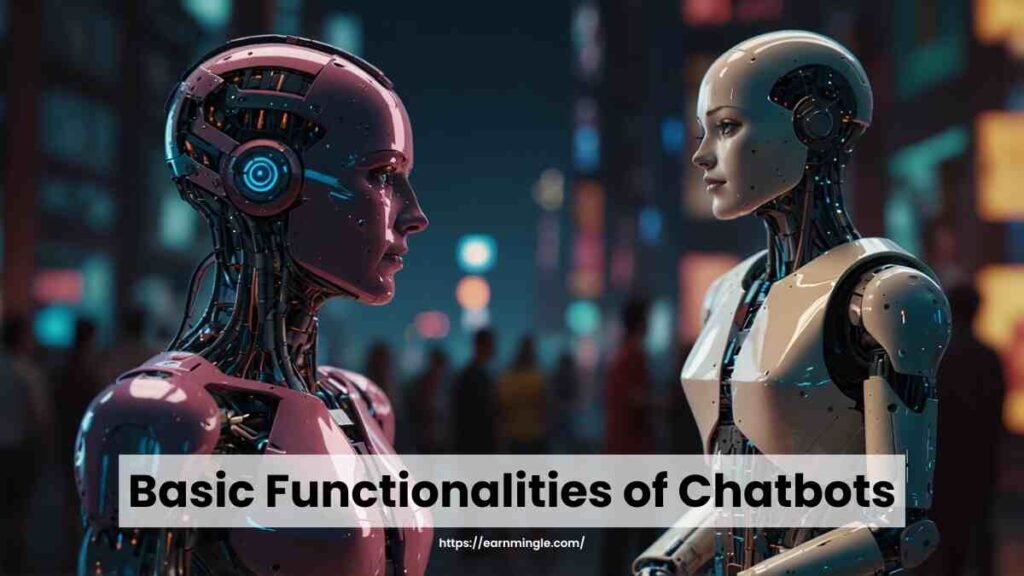
In essence, they are recognizers of user input with proper responses as an output. From answering FAQs to requesting the booking of flights or managing schedules, it is so simple or complex.
Follow Us: Earn Mingle
Types: Chatbots and Artificial Intelligence
There are two types of chatbots: rule-based and man-made intelligence-driven. A rule-based bot strictly adheres to defined lines of rules so can perform some explicit functions or respond to some explicit questions. Man-made intelligence chatbots, as their name indicates, employ AI and natural language processing in order to realize and respond to a richer depth of queries and are adaptable and flexible.
The Evolution of Artificial Intelligence
The history of artificial reasoning cuts across several years. From when it was first created back in the 1950s to the advanced systems we have today, it has been an incredible journey.
History of AI
The early history of AI involved quite basic concepts and algorithms. Some researchers laid the groundwork for AI: machines that could think and learn like people. Researchers such as Alan Turing and John McCarthy are among such individuals.
Major Focus of AI Research and Development
AI has come a long way, with so many milestones from the early days of expert systems in the 1970s, through machine learning in the 1980s, and now to deep learning in the 2010s. These developments bring AI closer to mimicking human intelligence gradually.
State of AI Technology Now
From self-driving cars to wise home appliances, AI is everywhere today. It is an enabling technology for the many technologies that we use every day and make our lives easier and more convenient.
How Chatbots Work Using AI
AI underlies most of the chatbots to interface with the users better.
Machine Learning: AI enables chatbots to learn by collaboration and also train over time. Chatbots can also respond in many more proper and relevant ways through past interactions.
Examples: Following are some examples of AI Chats:
- Siri: The Virtual Assistant for Apple
- Alexa: The Voice-Control Assistant of Amazon
- Google Assistant: Google’s AI assistant
Applications of Chatbots in Various Industries
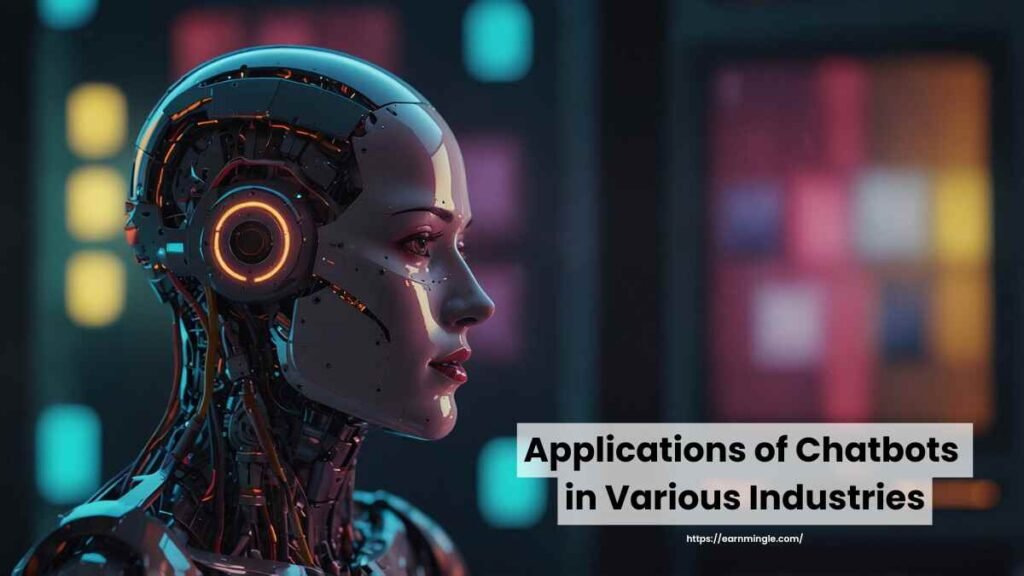
Chatbots in Different Industries As chatbots change and transform innovation in all areas of the economy, businesses will interact with their customers.
- Customer Support: Those chatbots manage customer inquiries, resolve issues, and support them, thereby reducing the need for human agents.
- Healthcare: They provide medical information and make appointments while sometimes even offering mental support in that field.
- E-commerce: E-commerce websites use chatbots to aid in suggesting products, order status, or even questions by customers, thus increasing the overall shopping experience.
- Education: It is believed to be the virtual tutor guiding students with their studies or answering them promptly on any query related to coursework.
- Finance: Account information, do transactions, and give financial planning—an accessible route to the banks.
Benefits of Chatbots and Artificial Intelligence
The advantages of using chatbots are numerous.
- Availability 24/7: These may work day and night, help, and provide information anytime, anywhere.
- Cost Efficiency: By removing the tedious nature of the tasks, chatbots spare businesses on the operational costs.
- Better Customer Experience: Customers receive prompt and efficient services through chatbots, thus better customer satisfaction.
- Personalization and Engagement: Using AI, chatbots can make tailor-made recommendations to the users and into meaningful conversations.
Challenges and Limitations: Chatbots and Artificial Intelligence
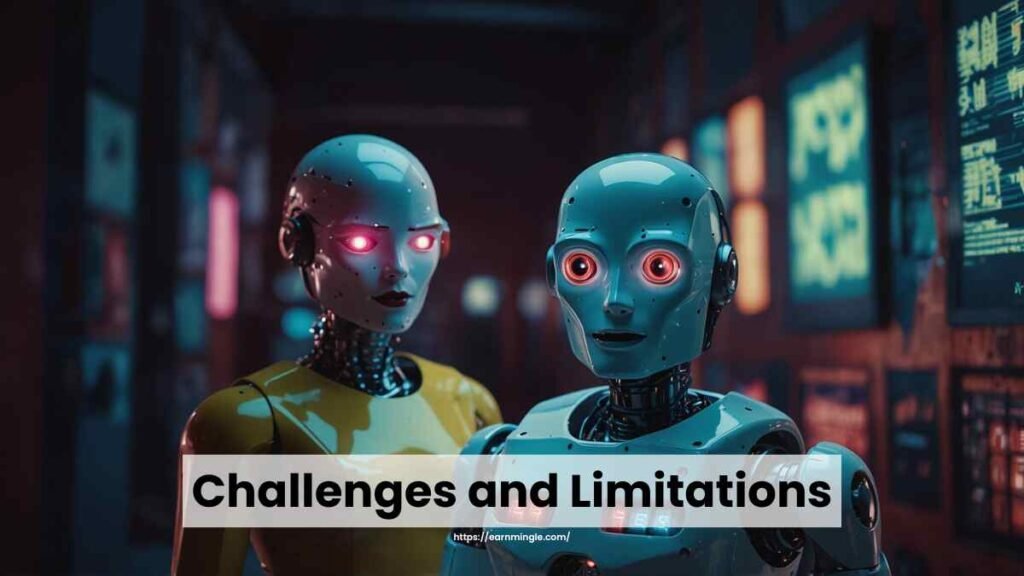
Despite having numerous benefits, there are several challenges that chatbots face.
- Understanding Context and Nuance: Especially sometimes the contextual meaning of the human language escapes the comprehension of the chatbots, which sends them astray in conversation.
- Security Concerns: Handling sensitive data brings security concerns to the frame, and hence strong security measures should be enforced.
- User Acceptance and Trust: This is tough since there are loads of frustrations and misinformation when their chatbots don’t meet expectations.
Future of Chatbots and AI
There are quite exciting trends on the horizon in future chatbot and AI development.
- Advancements in Conversational AI: There are several advantages and applications of improved conversational AI, from chatbots creating better, more natural, and meaningful conversations.
- Integration with Other Technologies: The integration of chatbots with IoT and augmented reality will usher in many new opportunities.
- Ethics: Two sure issues that would necessitate attention in the development process of AI and indeed in AI-based products are data privacy and algorithmic bias.
Conclusion
From customer service to an entire industry disruption, it’s all about the benefit and impact. And as AI continues to move ahead, the future looks bright for one of those technologies that will become even more integral in our digital lives: chatbots and artificial intelligence, which is changing the way we interrelate with technology.
Frequently Asked Questions
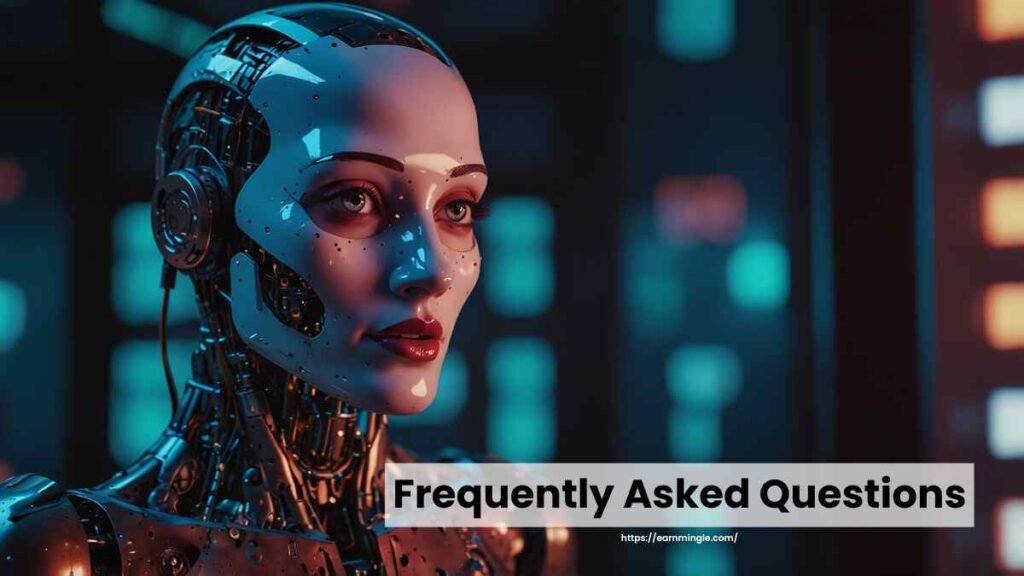
- What are chatbots, and how do they work?
A chatbot refers to the software that can be used in simulating human conversations using either text or voice. It recognizes the user’s inputs and gives back appropriate responses by relying on either rule-based systems or AI-driven NLP.
- How do AI-driven chatbots differ from rule-based chatbots?
AI-based chatbots use machine learning and NLP, which helps them learn on the go and give responses to intricate questions, whereas rule-based chatbots rely on predefined rules to respond to a set of defined questions.
- What are the main industries where chatbots are mainly used?
Customer service, health care, e-commerce, education, and finance-towards providing services 24/7, enhancing user experience, and automating processes.
- What are the problems a chatbot faces?
Major problems that chatbots face in such cases include very subtle language, data security, and trust issues since their response was not up to the mark.
- What do you think about Future of chatbots and AI?
Future promises as conversational AI; integration with IoT, augmented reality, and ethics regarding data privacy and algorithmic bias.
Read More: Innovative E-Commerce Ideas



